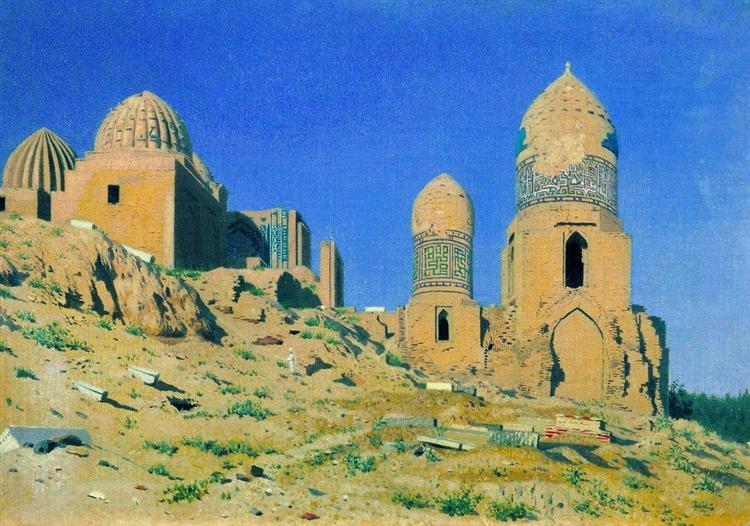
Been chatting with my sister about Lent lately. Old people talking about the meaning of things and the perspectives of the world. Since it is that time of the year (e.g. Lent, Great Lent, Ramadan) our discussions center around the origins and meaning of the various fasts that litter the religious faiths here in the world of monotheism.
Growing up a Catholic, I am most familiar with Lent. To tell you the truth, at the time, my Lenten routine was, as they say, “for show and not for dough”. For some reason I like the cross of ashes on my forehead, it set me apart and let me thumb my nose at the Mormons that ran the place. But truthfully, while I listened to Sister Anna Rita (who had me completely terrorized) I swore off candy or some other disposable frippery and then proceeded to forswear the oath within days. Such is life.
A couple of years ago, a friend at work who is a pretty devout Muslim piqued my interest about Ramadan. I began to follow the rules of Ramadan with a couple of exceptions. I still drank water, and I still drank coffee during the day. I didn’t eat before sunrise and I ate after the sun went down at my apartment. I refer to this as “Infidel Ramadan”.
But lately I have been thinking about the historical abstentions that are present in almost every faith. I spent some time thinking about this kind of thing and chatting with Sis and I went out and did some looking about.
Lent in the New Testament
Today, Lent is connected with the 40-day fast that Jesus undergoes (Mark 1:13; Matthew 4:1–11; Luke 4:1–13). Mark tells us that Jesus was tempted by Satan, but it is in Matthew and Luke that the details of the temptation are fleshed out. All three accounts say that Jesus went without food for the 40 days.
Rules Per Saint Thomas Aquinas for Lent:
Ash Wednesday and Good Friday were “black fasts.” These consisted of taking only one meal per day of bread, water, and herbs, after sunset.
Other days of Lent: no food until 3pm, the hour of Our Lord’s death. Water was allowed, and as was the case for the time due to sanitary concerns, watered-down beer and wine. After the advent of tea and coffee, these beverages were permitted.
No animal meats or fats.
No eggs.
No dairy products (lacticinia) – that is, eggs, milk, cheese, cream, butter, etc.
Ramadan in the Quran
183. O you who believe! Fasting is prescribed for you, as it was prescribed for those before you, that you may become righteous.
184. For a specified number of days. But whoever among you is sick, or on a journey, then a number of other days. For those who are able: a ransom of feeding a needy person. But whoever volunteers goodness, it is better for him. But to fast is best for you, if you only knew.
185. Ramadan is the month in which the Quran was revealed. Guidance for humanity, and clear portents of guidance, and the Criterion. Whoever of you witnesses the month, shall fast it. But whoever is sick, or on a journey, then a number of other days. God desires ease for you, and does not desire hardship for you, that you may complete the number, and celebrate God for having guided you, so that you may be thankful.
186. And when My servants ask you about Me, I Am near; I answer the call of the caller when he calls on Me. So let them answer Me, and have faith in Me, that they may be rightly guided.
187. Permitted for you is intercourse with your wives on the night of the fast. They are a garment for you, and you are a garment for them. God knows that you used to betray yourselves, but He turned to you and pardoned you. So approach them now, and seek what God has ordained for you, and eat and drink until the white streak of dawn can be distinguished from the black streak. Then complete the fast until nightfall. But do not approach them while you are in retreat at the mosques. These are the limits of God, so do not come near them. God thus clarifies His revelations to the people, that they may attain piety.
Ramadan rules:
abstaining from:
food,
drink,
and sexual relations
from before the first light of dawn until the setting of the sun.
Current Thoughts
I am probably more comfortable with Ramadan on a technical basis. Sura 2 lays things out pretty straightforwardly and simply states that fasting is good for you.
Lent is a different story. The council of Nicea came up with the idea in 325 AD and it stuck. There is no real biblical reference saying why you should do this thing. So who knows the reason that it came around. I have a hunch it was a work-around for the hungry times in an agricultural society when winter was over and the new crops were planted but in no way ready for harvest. The idea of fasting when there wasn’t a lot of food around probably helped the peasants a lot in both a spiritual manner and in the means of extending meager stocks.
I think that this is the way that I am going to look at this in this particular year. I don’t think that the lessons learned are that different from those being espoused by the Christian and the Islamic tradition. Fasting is good for you, it does provide for a spiritual insight when practiced…but I do believe that fasting reminds us of that most important belief, that we are part of a system and we have to deal with the ups and downs that the system throws at us.
Other Religions have fasting periods that I am just plowing through now, I am going to pose a question to JMG on Monday and get his take on this kind of thing for Druids and anyone else he knows about.


.jpg)

.jpg!Large.jpg)


.jpg!Large.jpg)